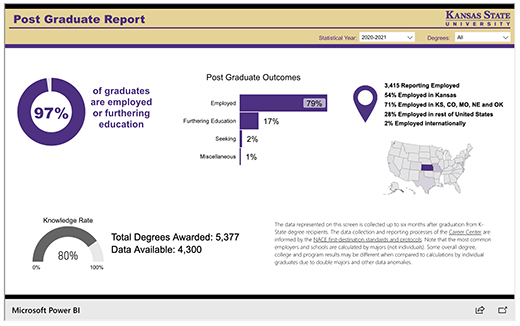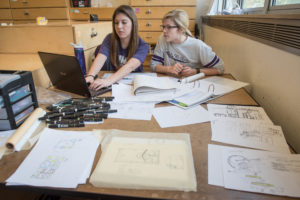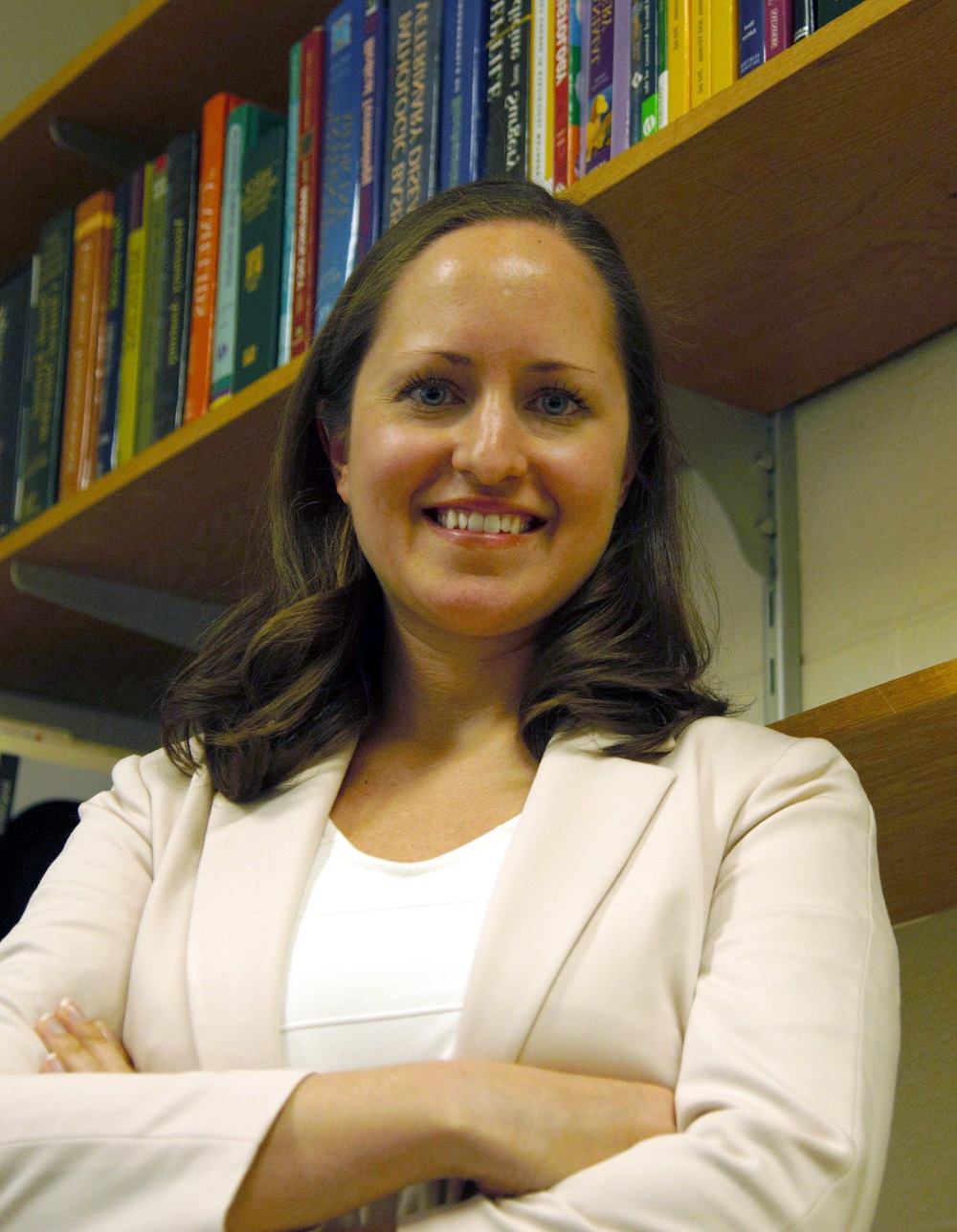K-State Current - January 26, 2022
K-State Current is a weekly news update for the Kansas Board of Regents to apprise the Regents on a few of the many successes and achievements made by K-State faculty, staff and students.

K-State News
 Kansas State University's 2020-2021 graduates are finding success within six months of their graduation. The university's latest post-graduation report shows that 97% of these graduates were employed or furthering their education and that median salaries rose $2,000 from a year ago.
Kansas State University's 2020-2021 graduates are finding success within six months of their graduation. The university's latest post-graduation report shows that 97% of these graduates were employed or furthering their education and that median salaries rose $2,000 from a year ago.
New Kansas State University graduates are putting their degrees to work — and earning more.
The latest post-graduation report from Kansas State University for graduates in the 2020-2021 school year finds 97% are employed or furthering their education — up from 95% for the 2019-2020 school year.
"Last year's K-State graduates were remarkably resilient," said Kerri Keller, K-State Career Center executive director. "Facing multiple disruptions to their personal and educational lives, they utilized their networks, experiences and resources to land opportunities during one of most challenging years that I have seen in 30 years of career services. I appreciate the employers who remained loyal to K-State and made efforts to connect with our students, whether that meant recruiting through virtual career fairs, online interviewing, listings jobs in the Handshake system or leveraging connections through social media."
The annual post-graduation report is based on surveys conducted within six months of a student's graduation from K-State. The report shows new K-State graduates are popular with employers in Kansas, with 54% of the university's recent graduates accepting jobs in the state. Among bachelor's degree recipients, 58% report being employed in Kansas. And among all graduates, 71% are employed in Kansas or the surrounding states of Colorado, Missouri and Nebraska. Of the remaining employed graduates, 28% had jobs elsewhere in the U.S. and 2% were working internationally.
Degrees from K-State are also proving their value. The median starting salary for new bachelor's degree graduates increased to $52,000 — up $2,000 from the previous year. A 2021 survey by SmartAsset finds new K-State graduates command the highest-average starting salaries in Kansas. And a new study by a K-State economics professor finds that students who re-enroll in college and complete their bachelor's degree earn more immediately after graduating and experience extra annual income growth.
The knowledge rate for the surveys was 80%.
Leading employers of new K-State graduates include Cargill, Koch Industries, Manhattan-Ogden USD 383 and Shamrock Trading Corporation. More than 3,250 different organizations hired at least one K-State graduate from the class of 2020-2021.
Of those graduates included in the report, 17% were furthering their education through almost 180 different graduate or professional programs with the most common fields of study, including accounting, business administration, law, medicine and veterinary medicine.
The K-State Career Center offers recruiting events that connect students with employers across all industries and career fields. The Career Center provides support to current students and is available to new graduates throughout the calendar year as they pursue their next steps. Services are available to students in person at the Berney Family Welcome Center as well as online through the Career Center website and a variety of virtual resources.
 K-State’s interior design program is ranked one of the best programs in the nation by collegerank.net. which named K-State’s program the fourth best bachelor’s degree program in the nation.
K-State’s interior design program is ranked one of the best programs in the nation by collegerank.net. which named K-State’s program the fourth best bachelor’s degree program in the nation.
The interior design program has been a top-ranked program in multiple rankings including DesignIntelligence, an independent company focused on the design and construction industry; Architectural Digest, a members-only community for design industry professionals; and housebeautiful.com, a part of the Hearst Digital Media group.
“The reward of consistent recognition as an outstanding interior design program is wonderful for our small, but exceptional, faculty team and our brilliant and hard-working students and graduates,” shared interior design and fashion studies department head Barbara Anderson. “They have earned this recognition.”
K-State’s interior design program is the only four-year interior design program in the State of Kansas accredited by the Council for Interior Design Accreditation. Interior design students become design professionals who excel in creating environments that are sustainable, founded on evidence-based strategies, and enhance user satisfaction, health, well-being, productivity and safety for all. More than 90% of graduates complete the program in four years and 93% of graduates enjoy post-graduation employment in multiple areas of the design industry with primary employers being multi-disciplinary architecture and design firms.
The interior design program is offered through the Department of Interior Design and Fashion Studies in the College of Health and Human Sciences, which inspires and prepares passionate and caring individuals for a meaningful life and career that promotes human well-being in the areas of business, design, teacher education, human behavior, and health sciences. Home to 17 undergraduate and 19 graduate degree programs housed in the departments of Applied Human Sciences; Food, Nutrition, Dietetics and Health; Hospitality Management; Interior Design and Fashion Studies; Kinesiology; Personal Financial Planning; and the K-State Center on Aging, the college provide students with the education and skills needed to make an impact in the lives of individuals, families and communities.
Collegerank.net has years of experience profiling and ranking institutes of higher education. A team of educators, researchers and journalists collaborate to rank degree programs based on what really matters to future university students. They use a unique ranking methodology that looks at a wide range of metrics related to return on investment, quality of education and support services. Learn more at collegerank.net.
K-State Faculty Highlights
 Raymond Deiser, library specialist for K-State Libraries, was recognized as Professional Staff of the Week at the Jan. 15 men's home basketball game.
Raymond Deiser, library specialist for K-State Libraries, was recognized as Professional Staff of the Week at the Jan. 15 men's home basketball game.
Faculty Senate, the Office of the President, K-State Athletics and the Division of Communications and Marketing wish to recognize his contributions to K-State.
Deiser's creativity and innovation have been exceptional over the past few years, specifically while Hale Library was closed because of the May 2018 fire. All physical material — books, maps, DVDs, etc. — were packed and shipped to a variety of locations for appropriate cleaning. Once the materials were returned, they needed to be directed to many different locations, some to storage and many to back to the stacks in Hale Library. Every book from the library needed to be touched and sorted — and the library has lots of books! Deiser spent many hours researching, learning, testing and editing to create a process that saved staff many hours and many computer clicks. His adaption of GRIMA APIs saved the library staff members time, allowing them to work more efficiently and quickly. With more than 800,000 items in the system, the process was going to take some time. Deiser's system reduced the process from taking months to taking weeks.
Not only did Deiser save the library staff time, but his work also saved time for contractor staff unpacking the boxes. Many of the staff did not speak English as a first language. Due to Deiser's work, they were able to scan the book and a color-coded screen told them where to direct the books.
Deiser has been patient with the concerns and questions of the staff during this time. The recovery of the fire is unprecedented on many levels — the physical building, the creation of new spaces within the building — to the logistics of bringing the books back into Hale Library. There was not a manual to follow, but the ease of following his direction made it seem like there was one.
The impact of Deiser's work to the university community may not initially seem obvious, but it becomes obvious when talking with researchers, students and faculty. The importance of getting the books back into the hands of the researchers, students and faculty cannot be overstated. Due to the amount of time library staff was able to save because of Deiser's determination and knowledge, library patrons now have access to these very important resources. Deiser's contributions to the Hale refill process have been exemplary.
 Megan Niederwerder, assistant professor of diagnostic medicine and pathobiology in the College of Veterinary Medicine at Kansas State University, will lead a new $513,000 research project to characterize African swine fever virus survival and transmission after introduction onto a farm. She will serve as the principal investigator on the two-year grant award from the National Pork Board and the state of Kansas National Bio and Agro-Defense Facility Fund.
Megan Niederwerder, assistant professor of diagnostic medicine and pathobiology in the College of Veterinary Medicine at Kansas State University, will lead a new $513,000 research project to characterize African swine fever virus survival and transmission after introduction onto a farm. She will serve as the principal investigator on the two-year grant award from the National Pork Board and the state of Kansas National Bio and Agro-Defense Facility Fund.
Niederwerder's research focuses on preventing the deadly swine virus from reaching the U.S. This includes determining the risk and mitigation of potential virus introduction routes, such as imported feed ingredients through which the virus could be transmitted to domestic pigs. The new grant award extends this work into virus preparedness. Data generated in her laboratory will help improve the response to virus detection in the U.S.
"While our primary goal is to prevent African swine fever virus introduction into the U.S., we have to be prepared for a swift and effective response should the virus ever enter our country," Niederwerder said. "Goals of the ongoing African swine fever virus research in my laboratory are not only to develop strategies for prevention, but to also broaden detection capacity and validate best practices for elimination."
Over the last decade, African swine fever virus has spread at an unprecedented rate to new countries and regions. In the last few months, the virus was detected in the Dominican Republic and Haiti, becoming the first confirmed cases of the virus in the Western Hemisphere in almost 40 years. As the virus spreads closer to the U.S., it is critical that the nation continues to invest in prevention and preparedness, Niederwerder said.
If African swine fever were to reach the country, Niederwerder and her team hope that their research will help U.S. pig farmers eliminate the virus as quickly as possible. To this end, they are seeking to identify new tools and protocols that can be implemented at the farm level.
"African swine fever virus is very stable under certain conditions and in certain materials, so decontaminating the environment is critical to reducing the time and spread of an outbreak," Niederwerder said. "If we can shorten the period from when the first infected animal is identified to the time when the farm is ready to repopulate and raise healthy pigs, this reduces the economic impact on pork producers."
Time will be of the essence if the virus enters the U.S. It is estimated the virus would cause losses to the pork industry between $15 billion to $50 billion, depending on the length and extent of the outbreak. Limiting animal and economic losses is why the country's main goal has to be controlling the virus's spread and eradicating it rapidly, Niederwerder said.
Because of the lack of a vaccine, African swine fever virus's impact on trade and exports is the most significant threat to global pork production. Although the virus does not affect human health and only infects pigs, the economic impact of this virus affects broad agricultural commodities and markets because pork is the most widely consumed protein worldwide.
K-State Student News
 Juliana Schwartz, a fourth-year graduate student, Manhattan, in interior architecture & industrial design in the College of Architecture, Planning & Design, has been selected as a semifinalist in the 2021 Steelcase Student Design Competition out of 995 participating students.
Juliana Schwartz, a fourth-year graduate student, Manhattan, in interior architecture & industrial design in the College of Architecture, Planning & Design, has been selected as a semifinalist in the 2021 Steelcase Student Design Competition out of 995 participating students.
The NEXT competition challenges undergraduates to imagine a workplace for the future. For the 2021 entries, the prompt outlined a startup clean beauty cosmetics company based in the heart of New York City that wanted a space to not only reflect their overall company brand and culture but draw inspiration from the local region.
Semifinalists have the opportunity to be flown to the Steelcase headquarters in Grand Rapids, Michigan, in February to present their projects to a panel of judges where an overall winner will be selected.
"We are proud of Juliana as she represents the interior architecture program in the coming finals," said interior architecture and industrial design department head Nathan Howe. "Being chosen as a semifinalist is already quite an achievement and exemplifies the highest quality of design thinking and execution. We wish Juliana the best of luck. Whatever the result, being one of five finalists from nearly 1,000 entries is pretty good company indeed."
Steelcase is an industry leader, creating great experiences by offering a range of architecture, furniture and technology products and services to help people reach their full potential. Together with its partners, Steelcase designs spaces to help people work, learn and heal.
K-State Current archive
 Megan Niederwerder, assistant professor of diagnostic medicine and pathobiology in the College of Veterinary Medicine at Kansas State University, will lead a new $513,000 research project to characterize African swine fever virus survival and transmission after introduction onto a farm. She will serve as the principal investigator on the two-year grant award from the National Pork Board and the state of Kansas National Bio and Agro-Defense Facility Fund.
Megan Niederwerder, assistant professor of diagnostic medicine and pathobiology in the College of Veterinary Medicine at Kansas State University, will lead a new $513,000 research project to characterize African swine fever virus survival and transmission after introduction onto a farm. She will serve as the principal investigator on the two-year grant award from the National Pork Board and the state of Kansas National Bio and Agro-Defense Facility Fund.
 Kansas State University's 2020-2021 graduates are finding success within six months of their graduation. The university's latest post-graduation report shows that 97% of these graduates were employed or furthering their education and that median salaries rose $2,000 from a year ago.
Kansas State University's 2020-2021 graduates are finding success within six months of their graduation. The university's latest post-graduation report shows that 97% of these graduates were employed or furthering their education and that median salaries rose $2,000 from a year ago. K-State’s interior design program is ranked one of the best programs in the nation by collegerank.net. which named K-State’s program the fourth best bachelor’s degree program in the nation.
K-State’s interior design program is ranked one of the best programs in the nation by collegerank.net. which named K-State’s program the fourth best bachelor’s degree program in the nation. Raymond Deiser, library specialist for K-State Libraries, was recognized as Professional Staff of the Week at the Jan. 15 men's home basketball game.
Raymond Deiser, library specialist for K-State Libraries, was recognized as Professional Staff of the Week at the Jan. 15 men's home basketball game. Juliana Schwartz, a fourth-year graduate student, Manhattan, in
Juliana Schwartz, a fourth-year graduate student, Manhattan, in